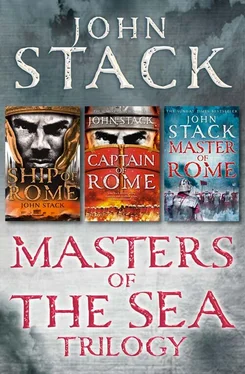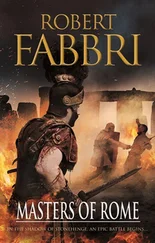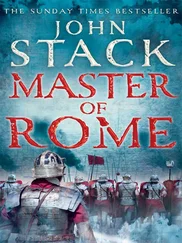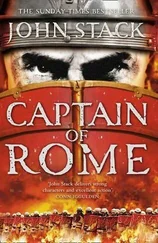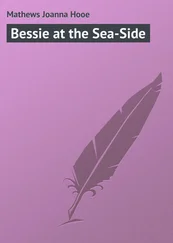Septimus had assembled his marines on the main deck, preparing the boarding parties that would sweep over the rails of the Aquila onto the Carthaginian galley. They had separated into two groups. The first group of twenty hastati and twenty principes , new recruits coupled with seasoned soldiers, were moving to station themselves on the foredeck. The second group, the older triarii , were ranged across the main deck, ready to counter any boarding party from the enemy ship. All had discarded their four-foot-long scutum shields for a hoplon . The lighter rounded shield was a Greek design, perfectly adapted to the speed and agility needed for boarding, and the marines had trained hard to overcome their past allegiance to the legions’ standard shield.
‘Steady men,’ Septimus said, sensing the aggression coupled with nervous tension in the soldiers assembled at his back. The enemy galley was only one hundred yards away and closing fast.
The Elissar tore through the waves at eleven knots, every turn of her bow matched and countered by the approaching Roman galley. Gisco had not anticipated the Romans would turn into the fight so soon, expecting his prey to continue their headlong rush for the mouth of the strait in a vain hope of making their escape. The reversal brought instant, instinctive commands as the galley was prepared for immediate battle. The helmsman worked hard to manoeuvre the Elissar into a ramming position, but his skills were evenly matched by those of the Roman helmsman. The Roman galley was now fifty yards away, her bow pointed directly at the Elissar ’s. There would be no opportunity to ram. As the bows connected they would be made fast by both crews, each looking to board the other.
Gisco turned from the approaching galley to look out over the stern rail. The Hermes was skirting the northern rim of the whirlpool, her tentative steps enraging the admiral. He had ordered the galley to join him in the pursuit, their combined strength initially needed to ensure the Romans would not escape. Now the Elissar would face the Romans alone and Gisco could not suppress the blood lust rising within him, the chance to gain some revenge for the loss of one of his galleys. Further behind, the Carthaginian fleet was advancing at battle speed. Once the two galleys engaged, Gisco estimated the fleet would be upon them within fifteen minutes.
Gisco left the aft-deck and strode determinately to the foredeck, leaving the helm in the charge of the captain. The admiral would command the boarding party himself, standing firmly in the front line. Gisco tightened his grip on the hilt of his sword, feeling the unyielding iron in his hand. He drew his weapon in one sudden release, the blade singing against the scabbard.
‘Prepare for impact. Make ready to board!’
His men roared with naked aggression. Gisco let them roar, let them fill their hearts and nerve with anger, a rage that he would throw against the Romans.
‘Prepare to release!’ Septimus ordered, and his twenty hastati hoisted their pila , their heavy javelins, up to shoulder height.
Gaius made one final adjustment to the rudder as the two galleys converged at attack speed. He gripped the worn timber of the tiller firmly in his hands as he held the course true, bracing his legs to cope with the anticipated command. The galleys were now only ten yards apart.
‘Loose!’ Septimus roared.
At almost point-blank range, all twenty hastati shot their pila into the massed ranks of Carthaginians on the foredeck of the Elissar . Each spear was eight feet long, with an iron shank that gave the weapon a fearsome penetrating power. As each spear struck its target, its shank broke off from the handle, rendering the weapon useless. The unexpected volley of javelins wrought tremendous carnage amongst the Carthaginians, breaking up the enemy formation that was poised to board the Aquila .
‘Starboard side, withdraw!’ Atticus roared, before taking off in a run towards the foredeck.
The order carried clearly to the slave deck and the drum master repeated the order to the starboard-side rowers. The slaves immediately stopped their stroke and pulled the oars in hand over hand. Within an instant the oars were withdrawn, with only their two-foot-long blades exposed outside the hull.
Gaius leaned the rudder slightly over to converge the two ships and the cutwater of the Aquila ’s prow tore into the extended starboard-side oars of the Elissar . The rowers of the Elissar were thrown from their positions like rag dolls as the fifteen-foot oars they manned were struck with the force of the seventy-ton Roman trireme travelling at eleven knots. Many of the oars splintered, while some held together to strike the slave at the handle end of the oar. In the confined space of the slave deck, with the men chained to their positions, there was nowhere to run to, and by the time the Aquila had run the length of the Elissar , the starboard-side slave deck of the Carthaginian galley was strewn with broken bodies.
‘Grappling hooks!’ Septimus ordered as the Aquila ’s foredeck came in line with the enemy’s aft. Immediately three of his men threw the four-pronged hooks across the narrow gap between the galleys. As the hooks found purchase on the Elissar ’s deck, the marines clambered to grab hold of the attached ropes and pull with all their might. The gap was closed to less than six feet. Septimus ran forward and jumped on the starboard rail, balancing easily with his gladius in one hand and rounded hoplon shield in the other.
‘Men of the Aquila , to me,’ he shouted, and jumped the gaping void beneath the two galleys, landing solidly on the aft-deck of the Carthaginian ship.
The marines roared as the blood lust of battle overwhelmed them and they followed the centurion without hesitation over the rails of the enemy ship, clamouring to be the first to draw Carthaginian blood. Septimus barged straight at the man nearest him and struck him squarely with his shield, using his momentum to knock the man off his feet, sending him reeling into someone behind. The few Carthaginians remaining on the aft-deck fled before the charge. Behind the marines, Atticus and Lucius jumped onto the deck of the Carthaginian galley, axes in their hands. Their task would take only minutes, time Septimus and his men would have to buy with their blood.
The war cries of the marines spilling over the rail of the Elissar fuelled the frustration within Gisco at the sudden reversal. The air around him was filled with the screams of injured and dying men while beneath his feet the deck still reeled from the impact of the Roman trireme’s run against the starboard-side oars of his galley. The ranks of his men had disintegrated under the hammer blows of the pila volley, and they were in chaos, with neither focus nor formation.
‘Men of the Elissar to me!’ Gisco bellowed as he charged from the foredeck. The veteran soldiers reacted more swiftly than the untested, and so the line of attack was ragged and uncoordinated, but their ferocity bore them on in a headlong rush along the length of the Elissar . They struck the line of Romans at full tilt, their momentum checked within a stride by the near-solid wall of shields.
Gisco sidestepped a thrust from a Roman marine before countering the stroke with a slash to the Roman’s thigh. The man yelled in pain as the sword bit deeply into the flesh, but before the admiral could deliver the killing blow his sword was stayed by another Roman, who followed the parry with a vicious attack. Gisco immediately realized that although each of the Romans fought as one man, they also fought as a team, overlapping their attacks, their coordination sapping the strength of the Carthaginians’ original charge. Gisco renewed the surge of the counterattack, urging his men on through the ferocity of his own charge. The Elissar would not fall easily.
Читать дальше
